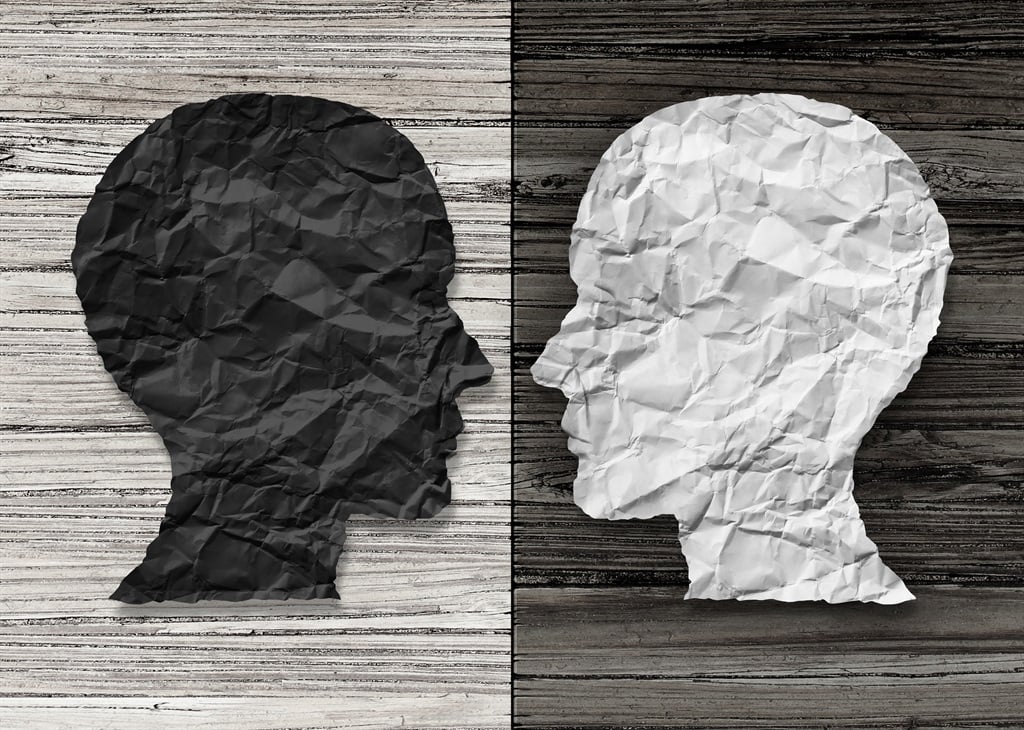
More than four million people in South Africa live with bipolar mood disorder, a mental condition that the World Health organisation has labelled the sixth leading case of disability in the world.
Despite so many people being affected, the stigma shrouding the mental disorder is fuelled by ignorance and a lack of compassion.
World Bipolar Day, which takes place every year on 30 March, is organised by the International Bipolar Foundation in partnership with the Asian Network of Bipolar Disorder and the International Society for Bipolar Disorders and is aimed at creating awareness and rallying support for those living with the disability.
Despite an increase in awareness, the mood disorder is not well understood outside the psychiatric fraternity.
Bipolar disorder affects a person’s mood, with periods of unusually intense emotion, which can swing from one extreme to the other. Someone suffering from the disorder can have episodes of depression or mania. People living with bipolar disorder tend to have their sleep patterns and activity levels significantly disrupted, leading to their ability to function negatively impacted.
The National Institute of Mental Health says some bipolar disorder symptoms are similar to other illnesses, making it harder for doctors to diagnose patients correctly.
In addition, many people have bipolar disorder along with other illnesses such as anxiety disorder, substance abuse, or an eating disorder. People with bipolar disorder are also at a higher risk of thyroid disease, migraine headaches, heart disease, diabetes, obesity and other physical illnesses, the institute adds.
HelpGuide.Org defines the differences between the various forms of bipolar as:
• Bipolar I disorder (mania or a mixed episode) – This is the classic manic-depressive form of the illness, characterised by at least one manic episode or mixed episode. Usually, but not always, bipolar I disorder also involves at least one episode of depression;
• Bipolar II disorder (hypomania and depression) – In bipolar II disorder, sufferers don’t experience full-blown manic episodes. Instead, the illness involves episodes of hypomania and severe depression; and
• Cyclothymia (hypomania and mild depression) – Cyclothymia is a milder form of bipolar disorder that consists of cyclical mood swings. However, the symptoms are less severe than full-blown mania or depression.
The National Institute of Mental Health says scientists are studying the possible causes of bipolar disorder, but most agree that there is no single cause. Instead, it is likely that many factors contribute to the illness or increased risk.
Research has shown that the brains of people with bipolar disorder may differ from the brains of people without bipolar. Genetics also play a part as some studies have linked certain genes to being predisposed to bipolar disorder more than others. Family history has been another link in explaining how the disorder affects certain individuals.
However, it is also possible for bipolar disorder to appear in someone who has no family history of the disease, says Professor Mauricio Tohen, of the American Psychiatric Association.
When managed properly, treatment can yield positive results for those who have bipolar disorder. Therapy includes medication administered by a medical professional, which contains mood stabilisers; atypical antipsychotics and antidepressants.
Psychotherapy and electroconvulsive therapy are also used to treat bipolar disorder, but because bipolar disorder is a lifelong condition, episodes of mania and depression typically come back over time. Between episodes, many people with bipolar disorder are free of mood changes, but some people may have lingering symptoms, says the South African Depression and Anxiety Group.
Bipolar disorder can bring out disruptions not only in the lives of those living with the condition, but in the lives of family members and caregivers. Therefore, even those caring or living with persons who have bipolar disorder stand to benefit immensely from seeking out support groups and professional help.
• People using social media to post videos and photographs to help raise awareness of bipolar disorder are encouraged to use the hashtags #WorldBipolarDay and #BipolarStrong while tagging @intlbipolar on Twitter and Instagram and @InternationalBipolarFoundation on Facebook.
• Justene Smith works for Progression, a company that focuses on enabling transformation and disabilities




 Publications
Publications
 Partners
Partners








